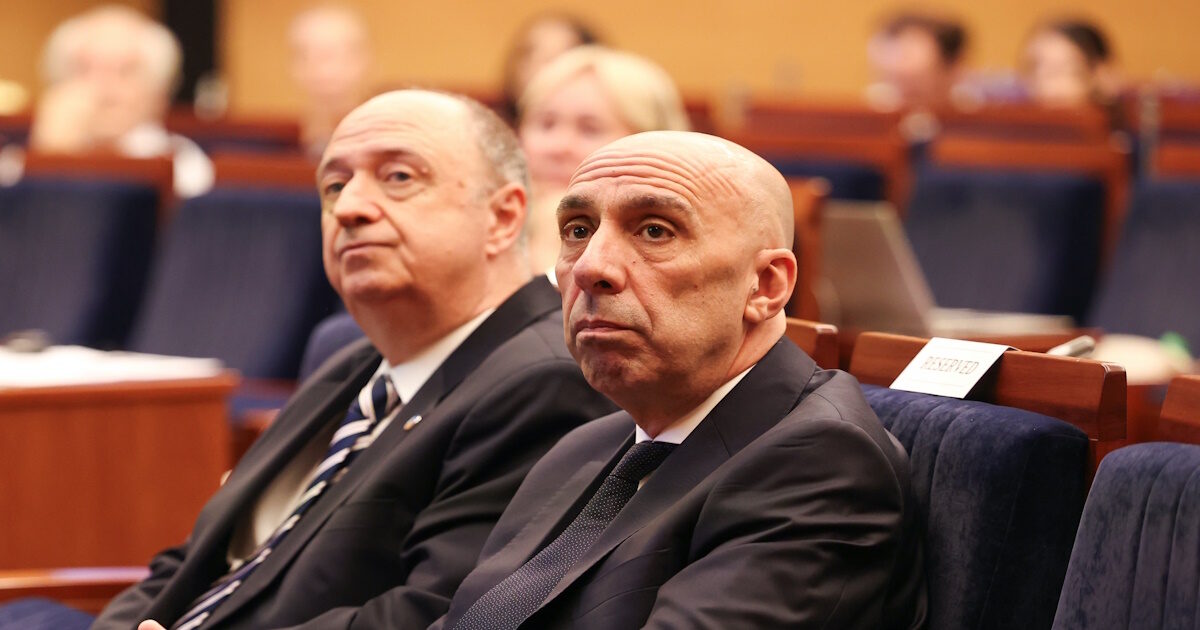“People like us, coming from countries that are plagued by war, natural disasters or even hunger, are forced to cross hundreds of thousands of kilometers in the hope of a better tomorrow. Many of them fall victim to employment exploitation, agriculture workers, livestock, in supply chains that will bring a number of products to our home. From the beginning of our operation as an Independent Authority, for about two and a half years, we have integrated into our activities, in collaboration with the Department of the Combat of the Trading of the Hellenic Police, actions in this area. Soon, both with the use of technology and with new tactics of controls, we will be more effective for the benefit of Greek society, “stressed the Independent Labor Inspection Commander, George Tzilivakis, during a workshop for the Trafficking and Industrial Chamber of Commerce.
The information event, for business executives from a wide range of activities, was organized by the Labor Inspectorate in collaboration with the Organization for Security and Cooperation in Europe (OSCE).
The head of the National Foreign Ministry’s National Rapporteur’s Office for the Fighting of Human Trafficking, Ioannis Brachos, presented the work that has been produced at national level, with the main reference to the coordination of the Ministries and Public Authorities in the fight against crime and the protection of victims. He emphasized the main features of the crime of trafficking in human beings for forced labor and the presentation of evidence, with which forced labor is first emerged in Greece as the main form of exploitation in human trafficking.
“In the modern business world, sustainability and corporate responsibility are not theoretical concepts. They are criteria for long -term success and durability. Businesses that want to establish their growth on solid foundations must strategically incorporate the social and environmental dimension into every aspect of their activity. As a Chamber of Commerce and Industry of Athens, we actively support this transition. Through actions and collaborations, we spread good practices and integrate the criteria for viability into business practices. We are ready to use our structures to facilitate the transition to the new environment and to promote a business culture where responsibility is inextricably linked to growth, “said EBEA President Yiannis Bratakos.
Fabian Bonertz, a senior OSCE adviser, reviewed international trends in due diligence legislation, emphasizing the risks of labor exploitation in the supply chain of contracts.
In a discussion that followed, under the coordination of the Head of Labor Inspection and Coordination of the Labor Inspectorate, Alexandra Broumou, regarding the practical steps for effective due diligence in business activities and the promotion of human rights protection, analyzed how the new CSD (EU) was analyzed Chain will affect businesses and enhance healthy corporate competition.
Ioannis Antonellos, a lawyer and legal adviser to the PPC Group, commented that although time has probably frozen for the implementation of the directive, after submitting the OMNIBUS proposal to the European Union’s institutions, to modify its implementing measures, in order to simply be able to simplify the measures. Human rights and dignity on which the content of the directive was based, should be inspired by the change in business culture.
Manolis Antonakakis, Associate PwC Legal Services, stressed that the new directive requires consultation with employees and their representatives to develop relevant policies, as the employee plays a central role in the compliance of the business through the possibility of a complaint. He also referred to the impact of the directive on small and medium -sized enterprises, which, although not directly subject to its scope, may be influenced as part of the supply chain of debtors.
In the same vein, Vasiliki Karagiannakis, a member of the Board of Directors of CSR Hellas, stressed that businesses are called upon to face many challenges in the application of the measures of the CSDDD Directive, as they need to know everything about their supply chain: where the raw materials come from and how to produce themselves and goods and services- and all the activities and people involved along the way.
“Business commitment to respect for human and labor rights is a fundamental element of sustainable development. We provide businesses with the supplies to move from commitment to substantial application. A process that is a moral obligation, a prerequisite for accountability and the necessity of compliance with the evolving regulatory framework, “said Panayiotas Lambropoulou, executive of the Un Global Compact Network Hellas.
Andrew Wallis of the British Unseen and Beate Ekeløve Slydal on behalf of the Norwegian Business Responsibility coalition, presented good practices to deal with the European level. Dr. Anastasia Chalkia, by the National Committee on Human Rights, explained the role of the Commission in promoting human rights and social responsibility, and Marina Donopoulou, Regional Coordinator of the Helos+project, by the International Organization for Migration, referred to the International Organization for Integration.
